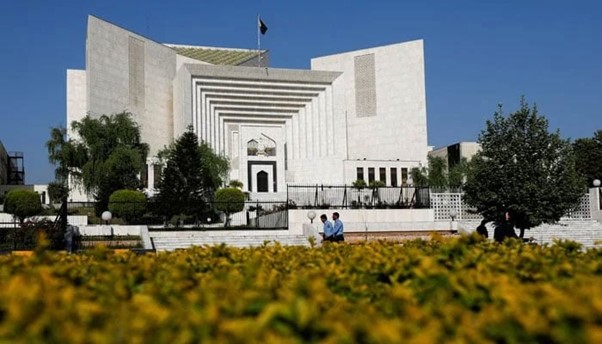ISLAMABAD: The Supreme Court of Pakistan ruled that the Pakistan Tehreek-e-Insaf (PTI) is a political party eligible for reserved seats. This judgment was detailed in a 70-page document written by Justice Mansoor Ali Shah. The ruling comes after National Assembly Speaker Ayaz Sadiq informed the Election Commission of Pakistan (ECP) that a prior court order from July 12 was not feasible due to amendments made to the Election Act of 2017.
In his letter, Sadiq referenced the court’s 8-5 majority ruling that allowed Imran Khan’s party to return to the assemblies after being ousted from the February 8 elections. He pointed out the amendments made to Sections 66 and 104-A, which pertain to the definition of independent candidates and the binding nature of their affiliation with political parties. The letter also highlighted that the amendments had a retrospective effect, dating back to 2017.
The judgment emphasizes that lacking an electoral symbol does not hinder a party’s constitutional right to participate in elections. “The Constitution and the law do not prevent any political party from fielding candidates,” the court stated. This ruling also addressed the ECP’s earlier decision to revoke the PTI’s “bat” symbol due to irregularities within its intra-party elections.
The Supreme Court reinforced that the PTI is indeed a political party, having won seats in national and provincial assemblies. It instructed the ECP to notify the former ruling party’s members regarding their reserved seats. The court found that the ECP’s decision from March 1 was inconsistent with the Constitution and held no legal value.
Additionally, the court criticized the ECP for not fulfilling its role as a crucial guarantor of democratic processes. “The Commission must recognize its constitutional position and the role it plays in ensuring free and fair elections,” the ruling stated. Justice Shah expressed surprise that the ECP acted as a “primary contesting party” against both the PTI and the Sunni Ittehad Council (SIC).
In the judgment, the court stated that when the ECP makes significant mistakes affecting the electoral process, judicial intervention is warranted. It acknowledged that while procedural norms typically dictate that parties must be formally recognized before relief is granted, this case is unique. It revolves around democracy and the electorate’s fundamental right to choose representatives.
The court also addressed dissenting opinions from Justices Amin-Ud-Din Khan and Naeem Akhtar Afghan, noting that their comments were inappropriate. The court criticized the manner in which they expressed their disagreement, stating it undermined the integrity of the judiciary.
The ruling concluded that a political party’s failure to adhere to intra-party election regulations does not strip it of its status as a political entity. The court clarified that the PTI remains a legitimate political party, stating, “It would be illogical to assume that a political party is fully functional while lacking individuals to manage its affairs.”
Furthermore, the National Assembly’s revised party positions show a coalition of 213 lawmakers, including 110 from PML-N, 69 from PPP, and several others. The opposition comprises 80 SIC members along with other parties.


